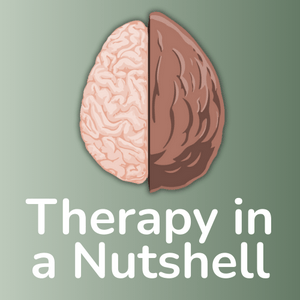How to Feel your Feelings: Step-by-Step Exercise and full debrief w/ Thomas McConkie, Mindfulness
Together we're going to do a Meditation for Emotions with Mindfulness Instructor Thomas McConkie. We're going to talk about how to work with the embodiment of emotions and how to create space for all our feelings, even the ones that are painful or frightening. You can learn more about Thomas' classes and workshops here: https://lowerlightswisdom.org/
Learn the skills to Regulate your Emotions, join the membership: https://courses.therapyinanutshell.com/membership
This exercise we’re about to do together is, in my opinion, life changing. It will fundamentally change how you interact with painful thoughts and emotions. You’ll practice creating space for them so that you can be less reactive and more intentional in your actions. It’s a powerful, transformative exercise. And, at the same time, it’s not difficult to practice. It’s a simple skill, and I’ve invited mindfulness expert Thomas McConkie to join us to teach it. As this exercise is designed to work with disturbances, or uncomfortable emotions, it’s going to be a little uncomfortable. But if you find yourself getting overwhelmed, feel free to take a break, do something comforting, and then come back to this exercise when you have more resources. We’re going to do a little introduction. Then we’ll do the exercise, which is about 12 minutes, then I’m going to debrief my experience with Thomas, because each time I do this exercise, something inside of me changes, but the first couple times it was pretty mind-blowing for me.
Looking for affordable online counseling? My sponsor, BetterHelp, connects you to a licensed professional from the comfort of your own home. Try it now for 10% off your first month: https://betterhelp.com/therapyinanutshell
Learn more in one of my in-depth mental health courses: https://courses.therapyinanutshell.com
Support my mission on Patreon: https://www.patreon.com/therapyinanutshell
Sign up for my newsletter: https://www.therapyinanutshell.com
Check out my favorite self-help books: https://kit.co/TherapyinaNutshell/best-self-help-books
Therapy in a Nutshell and the information provided by Emma McAdam are solely intended for informational and entertainment purposes and are not a substitute for advice, diagnosis, or treatment regarding medical or mental health conditions. Although Emma McAdam is a licensed marriage and family therapist, the views expressed on this site or any related content should not be taken for medical or psychiatric advice. Always consult your physician before making any decisions related to your physical or mental health. In therapy I use a combination of Acceptance and Commitment Therapy, Systems Theory, positive psychology, and a bio-psycho-social approach to treating mental illness and other challenges we all face in life. The ideas from my videos are frequently adapted from multiple sources. Many of them come from Acceptance and Commitment Therapy, especially the work of Steven Hayes, Jason Luoma, and Russ Harris. The sections on stress and the mind-body connection derive from the work of Stephen Porges (the Polyvagal theory), Peter Levine (Somatic Experiencing) Francine Shapiro (EMDR), and Bessel Van Der Kolk. I also rely heavily on the work of the Arbinger Institute for my overall understanding of our ability to choose our life's direction.
And deeper than all of that, the Gospel of Jesus Christ orients my personal worldview and sense of security, peace, hope, and love https://www.churchofjesuschrist.org/comeuntochrist/believe
If you are in crisis, please contact the National Suicide Prevention Hotline at https://suicidepreventionlifeline.org or 1-800-273-TALK (8255) or your local emergency services.
Copyright Therapy in a Nutshell, LLC


